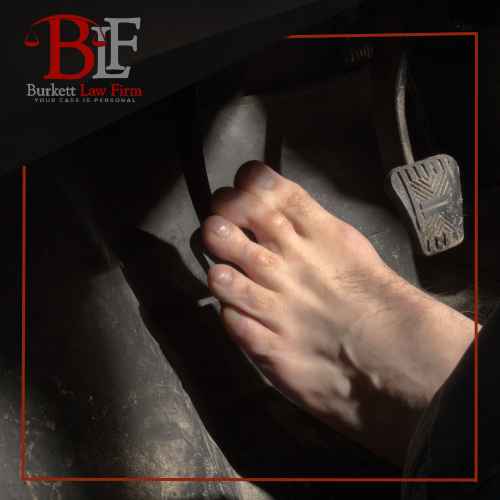
Being the victim of an accident and sustaining a personal injury can be a challenging and stressful situation. It is not unusual for those who are involved in this type of incident to experience significant emotional distress. For some, the emotional distress is so severe that it is debilitating.
If emotional distress impacts your life after an accident, you may wonder – can I sue for emotional distress? This is a good question and one that is answered here.
Emotional Distress After an Accident Defined
In a personal injury accident, victims may experience several types of damages.
The most common damages awarded in these cases are economic. You can also receive non-economic damages, including the victim’s pain and suffering.
Emotional distress is considered a type of non-economic damage. Some examples of emotional distress include the following:
- Feelings of helplessness or hopelessness
- Depression
- Post-Traumatic Stress Disorder (PTSD)
- Constant concern or worry
- Panic attacks or anxiety
- Suicidal thoughts or thoughts of hurting yourself
- Eating disorders
- Embarrassment
- Insomnia
- Guilt
- Substance abuse
- Sleeping too much
- No energy or low energy
After an accident, some people experience mild cases of emotional distress. However, some victims experience disabling symptoms. The individual may be unable to work, provide care for their family, or enjoy their favorite activities.
Mental health treatment may also be required for cases of emotional distress. Treatments often include medications, therapy, counseling, and more. This treatment aims to manage the symptoms and treat the underlying condition the person is dealing with.
How to Prove Emotional Distress Is a Result of an Accident
If you are wondering, can you claim emotional distress after a car accident (or any accident) in Texas? The answer is yes. However, there are certain things to know.
The negligent infliction of emotional distress may occur during an accident or a personal injury. The individual who caused the injury may not have meant to hurt you, but you experienced damages and injuries because of their negligence.
It is important to note that cases of negligent infliction of emotional distress can be associated with car accidents, construction accidents, slip and fall accidents, dog bite cases, and more.
It is necessary to prove the elements of negligence to receive compensation for emotional distress, which include the following:
- The individual owed you a duty of care
- That person breached the duty of care
- The breach that occurred was the direct and proximate cause of your injuries
- You experienced damages due to the breach
After proving the other person’s negligence caused your injury, it is possible to demand compensation for economic and non-economic damages. While this is true, Texas law only allows a victim to recover compensation for emotional distress if they experienced a physical injury because of the negligent acts of the at-fault party.
If you did not experience physical injuries, you could not recover compensation because of negligent infliction of emotional distress in Texas.
Types of Compensation Offered for Emotional Distress in Texas
If you successfully prove you are entitled to compensation for emotional distress, it is possible to receive several types of compensation, including the following:
- Time away from work due to the symptoms caused by emotional distress
- Medical costs for treatment of depression, anxiety, PTSD, and other symptoms related to emotional distress
- Diminished earning capacity
- Diminished quality of life
- Therapy and counseling bills
- Out-of-pocket costs
- Loss of enjoyment of life
Usually, the jury includes compensation for emotional distress with the other non-economic damages you are awarded. The total received for pain and suffering includes mental, physical, and emotional suffering from an accident and injury.
Compensation for the Intentional Infliction of Emotional Distress in Texas
You can also seek compensation in cases of intentional infliction of emotional distress. However, you still have the burden of proof to show that the alleged at-fault party committed the act that resulted in your distress intentionally.
It may be possible to recover compensation for this if you can successfully prove the following:
- The conduct of the person was reckless and intentional
- The conduct of a person was outrageous or extreme
- The conduct of a person resulted in your emotional distress
- You experienced extreme symptoms of emotional distress
Based on a ruling in Texas courts, this action is only possible if there is no other cause of action that may provide compensation for the emotional distress you have experienced.
Examples of cases that may give you a right to compensation after the intentional infliction of emotional distress include the following:
- Sexual assault
- Nursing home abuse
- Physical assault
- Road rage
As mentioned above, proving someone intentionally caused you harm is challenging. It is also difficult to prove you experienced any emotional distress if you did not sustain physical injuries.
Having mental health records proving you were diagnosed with one or several conditions or disorders after an incident is beneficial. Medical records showing the development of irritable bowel syndrome, high blood pressure, chronic acid reflux, ulcers, insomnia, and other stress-related conditions will help to prove your case.
How Much Does Emotional Distress Pay in Texas?
When it comes to emotional distress cases, the amount you can receive is often determined by what a judge is willing to pay. It is hard to put a specific amount on someone’s pain and suffering.
Since no formulas can predict the value of a case of this nature, a personal injury attorney can help determine the value of the damages you experienced and the value in court. Some of the evidence used to help value your emotional distress claim include the following:
- Related medical records
- Mental evaluations from mental health professionals
- Photos of the accident and your physical injuries
- Pain journal that includes how you feel each day
- Testimony from expert witnesses
Your attorney will work with this information to seek a per diem agreement with the other party. With this, a dollar amount is determined for your emotional distress. It is then multiplied by the total number of days between your accident and when you finished treatment.
Another method of determining the value of emotional distress in your case is the multiplier method. When a multiplier is assigned to any claim, it is based on the severity of the injuries and several other factors. The value of total emotional distress is equivalent to the multiplier times your financial damages.
To use this method, it is necessary that you can prove you experienced some type of economic or financial loss.
Do You Need an Attorney to Help with Your Emotional Distress Claim in Texas?
The simple answer to this question is “yes.” While there is no legal requirement for you to hire an attorney to handle a Texas emotional distress claim, usually, it is in your best interest to do so. You can contact The Burkett Law Firm to have our legal team evaluate your case and help you assign a value to the case.
We understand how devastating any accident can be, and experiencing emotional distress comes with this. We encourage you to reach out to schedule a free initial consultation to discuss your claim.
Read More
Will I Have to Go to Court to Resolve My Accident Claim?
What’s the Value of a Permanent Injury in a Personal Injury Claim?





